How I helped Liberia’s fight against Ebola
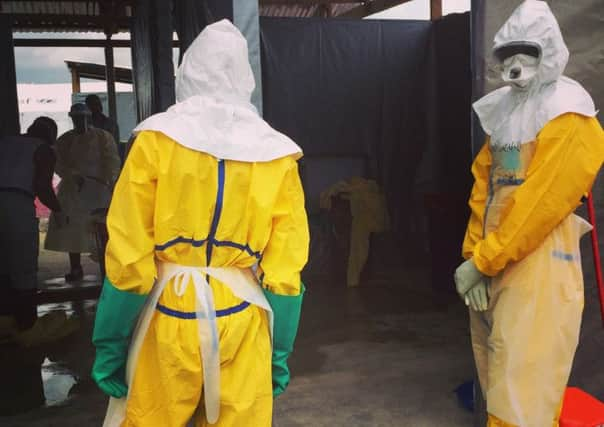

I arrived in Liberia in mid November, my first humanitarian deployment with Save the Children.
The journey there was relatively painless, with a short stopover in Casablanca given there are no direct flights to Liberia. As I stepped off the plane in the capital city of Monrovia the first thing I was met with was two health workers in full Personal Protective Equipment who took our temperatures and instructed us to wash our hand in buckets of chlorine either side of the terminal entrance.
Advertisement
Hide AdAdvertisement
Hide AdThis was to form part of my every day routine during my time there as I soon discovered.
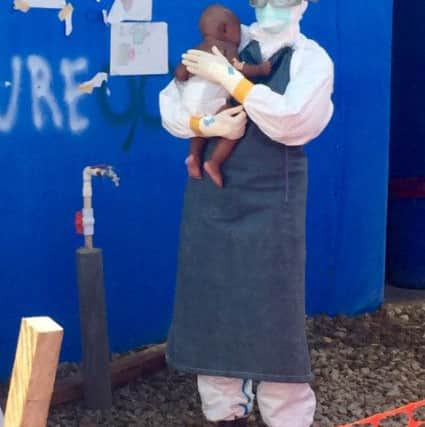

It has now been over ten months since the Ebola outbreak first took hold of Liberia. Since then, 8018 people have been infected and 3,423 have lost their lives to the virus.
Ebola has spread to all 15 counties in Liberia and whilst significant gains have been made in containing the spread, reducing the weekly infection rate from over 300 in August to the tens in December, it is too soon for anyone to relax.
The prevention routine is taken seriously wherever you go, spraying chlorine on your feet each time you get in a car, washing your hands in chlorine and having your temperature taken before entering any building - you start to not even notice you are doing it.
Advertisement
Hide AdAdvertisement
Hide AdMy role in Liberia was to co-ordinate all patient information throughout the country as well as document the stories of those affected, which meant I spent much of my time travelling out in the field, visiting the counties worst hit by Ebola and the families forever marked by its touch.
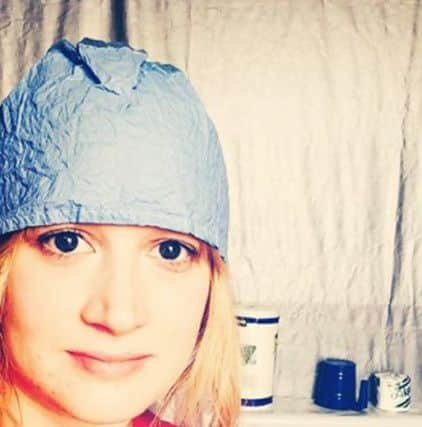

One of the areas greatly affected by this current outbreak is Bong in the north of the country, where over 550 people have been infected and entire villages have been placed in quarantine. It is here that Save the Children built their first Ebola Treatment Unit (ETU), which opened in September and is being run by International Medical Corps.
At the nearby sports stadium in Gbangher a makeshift holding centre, supported by Save the Children, has been established on the pitch. This is where families and unaccompanied children of patients at the ETU, who have been in direct contact with Ebola, stay during their 21 days of quarantine.
It is surrounded by a six foot fence and staffed by Ebola survivors given the high risk of those staying there.
Advertisement
Hide AdAdvertisement
Hide AdIt was here, at the end of November that I met a baby girl, Jojo, who was being cared for by an Ebola survivor. Her father had already passed away from the virus and her mother was in the nearby Ebola Treatment Unit fighting for her life.
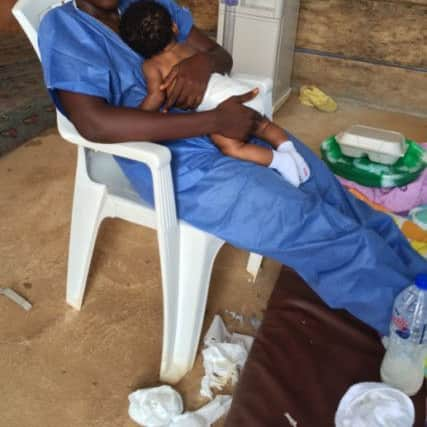

A week later we visited the ETU, hoping to hear good news about Jojo’s mother. Standing in the psychosocial hut which looks directly into the treatment ward, we waited for her to come out and speak with us. As we stood there, a health worker in Personal Protective Equipment (PPE) stepped through the door cradling a baby. The baby’s name was Jojo.
All of Jojo’s hair had been shaved to allow an IV to be inserted and it was clear to see that she was incredibly weak.
Moments later another lady in normal dress stepped out of the ward doorway. This was Jojo’s mother, who had recovered from the virus and was allowed to stay in the unit to care for her baby since she faced and posed no further risk.
Advertisement
Hide AdAdvertisement
Hide AdTalking to Jojo’s mother, she told us: “I thought the worst day of my life was when they brought me here and told me I had Ebola, I prayed for my life but the one saving grace was that my baby wasn’t with me.
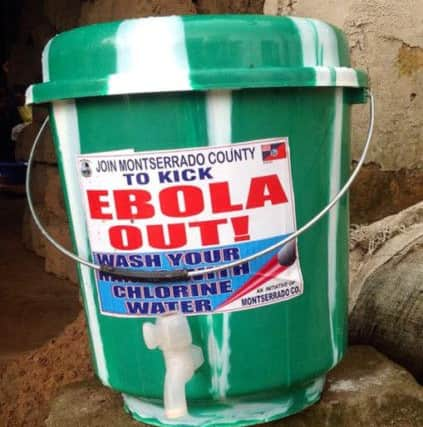

“When they told me I was better and I went home I was so happy, but three days later Jojo had a fever and I knew, I just knew. Now I’m back here fighting to keep my baby.”
As we spoke, directly behind her we watched two people in PPE walk out to the adjacent building, pick up a stretcher and walk back into the ward.
Moments later they remerged, this time with a body. Thankfully Jojo’s mother had her back to it all, but it was difficult not to think about the fact that there was up to a 70% chance Jojo could be next on the stretcher.
Advertisement
Hide AdAdvertisement
Hide AdThe team at the unit said they were hopeful Jojo could fight the virus because she was breast-feeding from her mother, a survivor, therefore was exposed to the antibodies that had saved her mother’s life. Though as with every patient of this virus, only time would tell.
Three weeks later and a phone call from the ETU confirmed that Jojo had completely recovered from the virus and had been discharged from the unit. She had made a remarkable recovery, a recovery that so many sadly do not make. But this isn’t the end for Jojo and her mother. All of their belongings have been burned, Jojo’s father and breadwinner has died – life cannot go back to normal.
Save the Children will provide both Jojo and her mother with survival kits that include clothes, bedding, food, hygiene items and toys for Jojo.
We will also provide psychosocial support to help her mother cope with her experience and readjust to life as a survivor.
Advertisement
Hide AdAdvertisement
Hide AdKnowing this as well as meeting other survivors who we have helped throughout this crisis, I feel a huge pride in working for Save the Children.
Jojo and her mother’s situation is a prime example of the much bigger problem facing Liberia. Even when the grip of this virus completely loosens its hold on the country, the long-term impact of the outbreak will be felt for years to come.
At present, over 46% of the workforce are unemployed and schools remain closed; tackling Ebola is just the first step in this very long recovery but we will be there every step of the way.
As I reflect on my time in West Africa, I am certain that if there is a country that can come back from this virus it is Liberia.
Advertisement
Hide AdAdvertisement
Hide AdThe people I met there are truly the most inspiring and resilient I have ever had the privilege of meeting and I left the country knowing that however bad it might be right now, Ebola will never break Liberia.
So to everyone who has supported the UK’s response to Ebola, I want to say a huge, heartfelt thank you.
Save the Children and the international community have broken new ground with their response to the Ebola crisis in West Africa - because that was their only choice.
They have “stepped into the unknown each day” and admit that things haven’t always gone to plan.
Advertisement
Hide AdAdvertisement
Hide AdStopping the spread of the disease is a challenge unlike anything Save the Children has ever faced before, but when the need is overwhelming their response is simple: do whatever it takes.
A spokesperson for the charity said: “This time, ‘whatever it takes’ was more than we have ever bargained for. Normally, when the bombs and bullets are flying, it’s just you at risk.
“This time, the risk of bringing Ebola back to family and friends is what keeps our teams awake at night.
“However, by applying their dedication, courage and expertise our teams have reached more than 150,000 people, including 50,000 children, affected by the epidemic.”
Advertisement
Hide AdAdvertisement
Hide AdThe aftermath of Ebola is going to be felt in the communities affected for some time yet. At least 3,700 children have lost one or both parents to the disease and Save the Children are helping the Liberian authorities to ensure that children orphaned by the disease have safe places to stay until a permanent home can be found for them in their community.
To make a donation towards the appeal go to the Save the Children Ebola crisis donation page